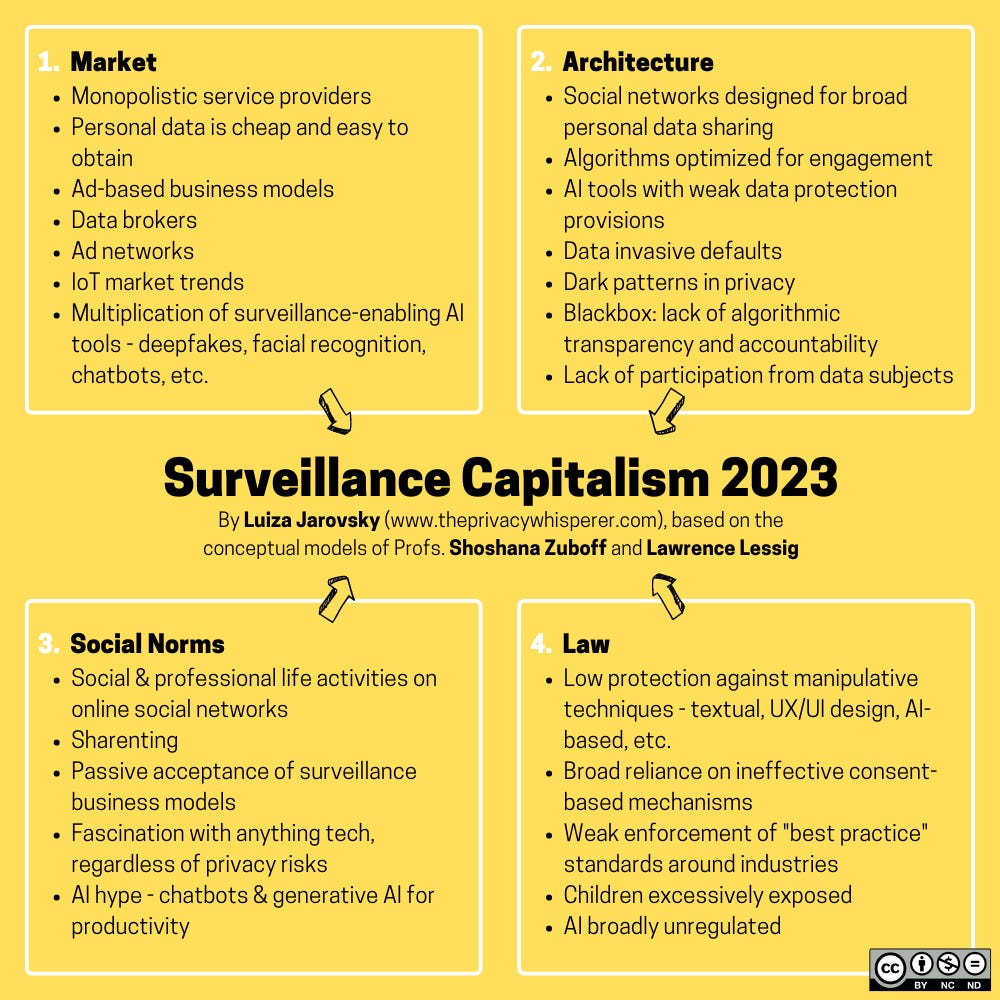The FTC Investigates OpenAI: Examining ChatGPT's Data Practices

Table of Contents
The FTC's Concerns Regarding ChatGPT Data Handling
The FTC, responsible for enforcing US consumer protection laws, investigates unfair or deceptive business practices. Their authority stems from the Federal Trade Commission Act, which empowers them to prevent unfair methods of competition and unfair or deceptive acts or practices affecting commerce. In the case of OpenAI and ChatGPT, the FTC's concerns center around several key areas:
-
Violation of consumer protection laws related to data privacy: The FTC is examining whether OpenAI's data collection and usage practices comply with existing laws like the CCPA (California Consumer Privacy Act) and other state-level privacy regulations. Concerns include whether users are adequately informed about how their data is collected, used, and protected.
-
Concerns about the accuracy and potential biases in ChatGPT's outputs: The FTC is likely investigating whether ChatGPT's outputs are misleading or perpetuate harmful biases present in the massive datasets used to train the model. This includes examining the potential for discriminatory outcomes based on factors like race, gender, or religion.
-
Issues with data security and the potential for data breaches: The sheer volume of data processed by ChatGPT raises concerns about data security. The FTC will likely assess OpenAI's security measures to prevent unauthorized access, use, or disclosure of user data, particularly sensitive personal information.
-
Lack of transparency regarding data collection and usage: A significant concern involves the lack of transparency surrounding OpenAI's data practices. The FTC will assess whether OpenAI provides sufficient information to users about what data is collected, how it's used, and with whom it's shared. This includes scrutinizing OpenAI's terms of service and privacy policy for clarity and compliance.
The investigation involves analyzing the types of data collected, which may include user inputs, browsing history (if integrated with browsing data), and potentially other personally identifiable information. Understanding how this data informs the model's training and outputs is a crucial part of the FTC's assessment.
OpenAI's Data Practices and Their Potential Legal Ramifications
OpenAI maintains publicly available data policies and practices outlining its approach to data handling. However, the FTC's investigation challenges the adequacy and compliance of these policies.
-
Analysis of OpenAI's terms of service and privacy policy regarding data usage: The FTC will scrutinize the clarity and comprehensiveness of OpenAI's terms of service and privacy policy, focusing on user consent, data retention policies, and data sharing practices. Any discrepancies between stated policies and actual practices could result in legal ramifications.
-
Discussion of OpenAI's efforts (or lack thereof) to mitigate biases in its datasets: Mitigating biases in training data is a significant challenge for AI developers. The FTC's investigation will examine OpenAI's efforts – or lack thereof – to identify and address biases in its datasets to prevent discriminatory or unfair outcomes from ChatGPT.
-
Examination of OpenAI's security measures to protect user data: OpenAI's data security protocols will be under intense scrutiny. The FTC will assess the robustness of these measures, evaluating their effectiveness in protecting user data from unauthorized access, breaches, and misuse.
Potential violations of existing regulations like the GDPR (General Data Protection Regulation) in Europe and the CCPA in California could lead to substantial fines and legal penalties for OpenAI. The scale of the potential penalties depends on the severity of any violations found during the FTC's investigation.
The Broader Implications for the AI Industry and Data Privacy
The FTC's investigation into OpenAI has far-reaching implications for the entire AI industry and the future of data privacy.
-
Increased scrutiny of other AI companies and their data practices: The OpenAI investigation sets a precedent for increased regulatory oversight and scrutiny of other AI companies' data handling practices. This will likely lead to greater accountability and transparency across the AI sector.
-
Potential for new regulations and legislation related to AI data privacy: The investigation could spur the development of new regulations and legislation specifically targeting AI's impact on data privacy. This could include stricter requirements for data collection, processing, and protection, particularly for LLMs.
-
Impact on consumer trust and adoption of AI technologies: Concerns about data privacy and AI bias can significantly impact consumer trust and adoption of AI technologies. The FTC's investigation will influence public perception and could potentially slow the widespread adoption of AI systems until clearer regulatory frameworks are in place.
-
The need for greater transparency and accountability in AI development: The investigation highlights the critical need for greater transparency and accountability in the development and deployment of AI systems. Ethical considerations related to data privacy and bias mitigation should be integrated into all stages of the AI lifecycle.
The ethical implications of using personal data to train AI models cannot be overstated. User consent, data minimization, and robust security measures are paramount. The development of responsible AI necessitates a focus on user privacy and ethical considerations.
Conclusion
The FTC's investigation into OpenAI's data practices underscores the urgent need for comprehensive regulations and greater transparency in the rapidly evolving AI industry. The concerns surrounding ChatGPT's data handling – encompassing data privacy, bias mitigation, and data security – highlight the potential risks associated with LLMs. The outcome will significantly influence the future trajectory of AI development, shaping how companies collect, use, and protect user data. The emphasis on responsible AI development, prioritizing user privacy and ethical considerations, must remain paramount. Stay informed about the FTC's investigation into OpenAI and the ongoing developments concerning ChatGPT's data practices. Understand your data rights and advocate for responsible AI development that prioritizes privacy and ethical considerations. Learn more about data privacy and the implications of AI technology on your personal information.

Featured Posts
-
 Demna At Gucci Analyzing The Creative Direction Change
May 24, 2025
Demna At Gucci Analyzing The Creative Direction Change
May 24, 2025 -
 Is A Wall Street Comeback A Threat To The German Daxs Recent Success
May 24, 2025
Is A Wall Street Comeback A Threat To The German Daxs Recent Success
May 24, 2025 -
 Analysis Of Thames Waters Executive Bonus Scheme A Critical Examination
May 24, 2025
Analysis Of Thames Waters Executive Bonus Scheme A Critical Examination
May 24, 2025 -
 Glastonbury 2025 Olivia Rodrigo And The 1975 Headline Full Lineup Speculation
May 24, 2025
Glastonbury 2025 Olivia Rodrigo And The 1975 Headline Full Lineup Speculation
May 24, 2025 -
 Severe Traffic Delays On M56 Following Accident Near Cheshire Deeside
May 24, 2025
Severe Traffic Delays On M56 Following Accident Near Cheshire Deeside
May 24, 2025
Latest Posts
-
 Mz
May 24, 2025
Mz
May 24, 2025 -
 High Cost Of Living Impacts Canadian Auto Theft Prevention Measures
May 24, 2025
High Cost Of Living Impacts Canadian Auto Theft Prevention Measures
May 24, 2025 -
 Londons Odd Burger A Canadian Vegan Food Expansion
May 24, 2025
Londons Odd Burger A Canadian Vegan Food Expansion
May 24, 2025 -
 Vegan Food Revolution Odd Burger Launches In 7 Eleven Stores
May 24, 2025
Vegan Food Revolution Odd Burger Launches In 7 Eleven Stores
May 24, 2025 -
 Zekanin Astrolojik Yansimalari En Zeki Burclar Ve Oezellikleri
May 24, 2025
Zekanin Astrolojik Yansimalari En Zeki Burclar Ve Oezellikleri
May 24, 2025
